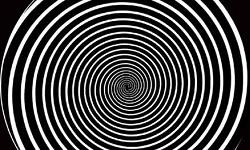How To Treat Anorexia Through Hypnotherapy
 Hypnotherapy is distinguished from hypnosis in two ways. The first is the goal – like the name implies, hypnotherapy is a type of therapy and treatment is the objective. This makes it different than other types of hypnosis, which may be for entertainment, memory recall, or used as a one-off cure for smoking cessation or other reasons.
Hypnotherapy is distinguished from hypnosis in two ways. The first is the goal – like the name implies, hypnotherapy is a type of therapy and treatment is the objective. This makes it different than other types of hypnosis, which may be for entertainment, memory recall, or used as a one-off cure for smoking cessation or other reasons.
The second difference, related to the first, is that hypnotherapy is practiced by medical professionals and is paired with other medical treatments. In the case of anorexia, the physical damage the disease causes has to be monitored and treated by a physician with the role of the hypnotherapist associated and parallel to this.
Who can provide treatment?
Depending on the state you are in, different standards may apply to use the title hypnotherapist. At a minimum, a practitioner should have certification in counseling and in hypnosis. As with other professionals, getting a referral from a “regular” therapist or physician is a good idea.
Further, you’d like someone who has training and experience with treating eating disorders through hypnosis.
Does it work?
The University of Maryland Medical Center says:
“Hypnosis may be helpful as part of an integrated treatment program for anorexia nervosa. Hypnosis may help the person strengthen both self confidence and the ability to cope. That may result in healthier eating, improved body image, and greater self esteem.”
Note the phrase “integrated treatment program.” Modern medical practice includes many subspecialties working together, and it is no different with hypnosis and anorexia.
It doesn’t work in all cases, but nothing does. Not everyone can be hypnotized, and not everyone who can be will gain a clear benefit from it. But it does offer hope for many.
What is it like?
In many ways, hypnotherapy is like other “talk therapies.” Your first session will be a review of your case and getting to know you. The therapist will tell you what to expect and explain something about hypnosis. They may see how easy it is to hypnotize you.
Subsequent sessions will walk you through a program of relaxation techniques and help you change your behaviors. You may be given exercises and trained on self-hypnosis you can use at home.
The goals of these sessions will be:
- To help you spot the origins of your unwanted behaviors.
- To improve confidence and self image.
- To help you regain control over your behaviors.
- To help you overcome your current responses to body cues like hunger.
- To give you techniques you can use when emotional responses trigger unwanted behaviors.
 Eating Disorder Self Test. Take the EAT-26 self test to see if you might have eating disorder symptoms that might require professional evaluation. All answers are confidential.
Eating Disorder Self Test. Take the EAT-26 self test to see if you might have eating disorder symptoms that might require professional evaluation. All answers are confidential.